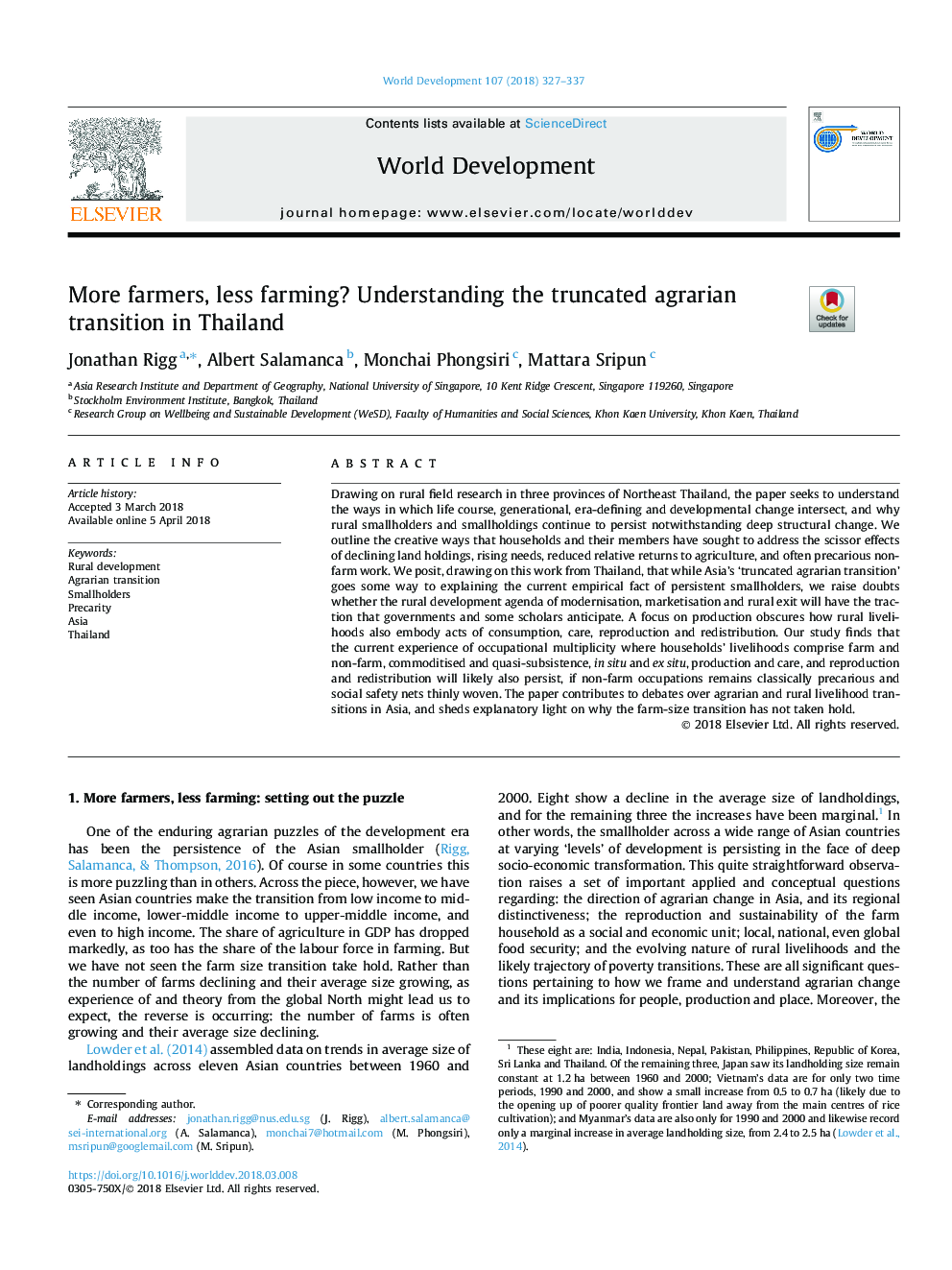| Article ID | Journal | Published Year | Pages | File Type |
|---|---|---|---|---|
| 7391889 | World Development | 2018 | 11 Pages |
Abstract
Drawing on rural field research in three provinces of Northeast Thailand, the paper seeks to understand the ways in which life course, generational, era-defining and developmental change intersect, and why rural smallholders and smallholdings continue to persist notwithstanding deep structural change. We outline the creative ways that households and their members have sought to address the scissor effects of declining land holdings, rising needs, reduced relative returns to agriculture, and often precarious non-farm work. We posit, drawing on this work from Thailand, that while Asia's 'truncated agrarian transition' goes some way to explaining the current empirical fact of persistent smallholders, we raise doubts whether the rural development agenda of modernisation, marketisation and rural exit will have the traction that governments and some scholars anticipate. A focus on production obscures how rural livelihoods also embody acts of consumption, care, reproduction and redistribution. Our study finds that the current experience of occupational multiplicity where households' livelihoods comprise farm and non-farm, commoditised and quasi-subsistence, in situ and ex situ, production and care, and reproduction and redistribution will likely also persist, if non-farm occupations remains classically precarious and social safety nets thinly woven. The paper contributes to debates over agrarian and rural livelihood transitions in Asia, and sheds explanatory light on why the farm-size transition has not taken hold.
Related Topics
Social Sciences and Humanities
Economics, Econometrics and Finance
Economics and Econometrics
Authors
Jonathan Rigg, Albert Salamanca, Monchai Phongsiri, Mattara Sripun,
